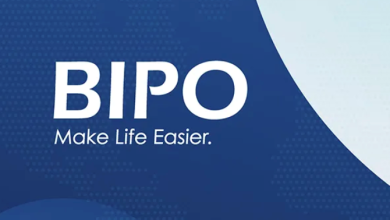Understanding Triggers in Recovery: Key Strategies for Lasting Change

Recovery from substance abuse is a transformative journey. A critical aspect of this journey is understanding what triggers relapse in recovery and managing them, which can significantly influence the risk of relapse.
Triggers, whether internal or external, have the potential to disrupt the recovery process, but with effective strategies and support, individuals can foster lasting change for a healthier future. This article explores the nature of triggers, their impact, and strategies to overcome them, ensuring a resilient and sober lifestyle.
What Are Internal and External Triggers in Recovery?
Triggers are emotional, mental, or environmental cues that prompt cravings to use drugs or alcohol. They are often rooted in past behaviors and can be categorized as:
Internal Triggers: Internal triggers arise from within, such as negative thoughts, strong emotions, negative feelings, or physical discomfort like physical illness.
External Triggers: These are environmental or situational, such as certain places, people, or stressful situations associated with past substance use.
Recognizing and addressing these triggers is essential to prevent addiction relapse and support long-term recovery.
Common Addiction Relapse Triggers
Triggers manifest differently on different people. While triggers may vary from person to person, some are common in individuals that suffer from substance use disorder. They include:
Stressful Situations: Work pressure, financial struggles and relationship conflicts can be a trigger to most people.
Emotional Triggers: Feelings like anger, sadness, or loneliness can spark cravings.
Negative Events: Negative events such as loss of a loved one, a breakup, or career setbacks affects every individual.
Physical Illness: Pain or discomfort can lead to drug or alcohol use as a coping mechanism.
High-Risk Situations: Being around drugs or alcohol, old friendship circles from times of active addiction, or locations tied to past drug use could be one of the biggest triggers of relapse.
Understanding these addiction relapse triggers can make a significant difference in maintaining sobriety.
The Relapse Process: How to Identify Triggers
A relapse happens when a person slowly gets back to their level of use of a substance. Relapse doesn’t happen suddenly. It progresses through three stages:
Emotional Relapse Stage: When a person has unmanaged stress and experiences negative emotions, they are likely to relapse. They also start to ignore self-care needs because they experience emotional fatigue.
Mental Relapse: Individuals start to struggle with cravings, battling memories of past substance use, and considering giving in.
Physical Relapse: This is the last stage. Individuals start to return to drug use or consuming alcohol. That restarts the cycle of addiction all over again.
Recognizing the warning signs of each stage can help individuals implement preventive measures early.
Identifying Personal Triggers
Self-awareness is key to overcoming addiction relapse triggers. Reflecting on your personal triggers can help you understand patterns of behavior and emotion tied to substance abuse. Journaling, mindfulness practices, and guidance from an addiction specialist or a Massachusetts drug rehab program can provide valuable insights.
Strategies for Managing Common Triggers: Both External and Internal Triggers
Managing triggers is an important step in overcoming addiction. Triggers are things that make someone want to return to old habits, like certain places, feelings, or situations.
They can show up in daily life, such as during parties, when feeling sad, or even when alone. Learning how to handle these moments can help people stay strong and make better choices. By understanding what causes these feelings and finding healthy ways to cope and manage stress, it becomes easier to stay on the path to a better life.
Some strategies you can use include:
1.) Develop a Relapse Prevention Plan
A relapse prevention plan tailored to individual needs can significantly reduce the risk of relapse. While going through treatment for alcohol addiction and drug abuse, a specialist curates a plan for you to prevent a potential relapse. This plan may include:
- Identifying and avoiding high-risk situations
- Practicing healthy coping mechanisms like deep breathing exercises, journaling, or exercising
- Engaging in support groups for shared accountability and encouragement
2.) Enhance Emotional Regulation
Learning to manage emotional responses is critical for maintaining sobriety. Techniques like relaxation techniques, deep breathing, and mindfulness can help manage strong emotions and negative feelings without resorting to addictive behaviors.
3.) Strengthen Support Systems
A good support system, including family, friends, and a family program offered by an addiction treatment center, provides emotional encouragement and accountability. Support groups can also foster connections with others who understand the challenges of addiction recovery.
4.) Practice Self-Care
Prioritizing self-care can make a significant difference in the healing process. Focus on:
- Maintaining adequate sleep and healthy eating to support physical health
- Building self-confidence by celebrating small victories
- Engaging in activities that keep you grounded in the present moment
Self-care also boosts the self-esteem of people in their recovery journey.
5.) Learn Healthy Coping Strategies
Replacing harmful habits with healthy ways of dealing with stress is vital. Some of the ways that can help you through it includes:
- Pursuing hobbies or interests to distract from cravings
- Using relaxation techniques during moments of high stress
- Seeking professional help for unresolved trauma or mental illness
6.) Minimize Triggers
Triggers cannot be avoided. Once you identify triggers, take steps to reduce their presence in your life. Avoid places, people, or situations tied to past substance use, and establish new routines that prioritize your sober lifestyle. If you are in environments that trigger you, communicate about how uncomfortable you are. You can also choose to leave such environments.
The Role of Addiction Treatment Centers
Reputable addiction treatment centers offer comprehensive treatment programs to support individuals at all stages of recovery. These centers provide access to:
- Professional guidance from addiction specialists
- Evidence-based therapies to address mental health concerns and prevent relapse
- Family programs to strengthen relationships and create a supportive environment
The Power of Support Groups in Addiction Recovery
Joining support groups can be transformative. Sharing experiences, learning from others, and receiving encouragement helps individuals stay committed to their recovery goals. These groups also offer tools to handle common internal triggers, emotional triggers, and external triggers effectively.
Preventing Physical Relapse for Long-Term Recovery
Preventing addiction relapse requires vigilance and commitment to the strategies outlined above. Building a lifestyle centered on healthy coping mechanisms, emotional regulation, and strong support systems ensures a path to sustainable sobriety.
Remember that every challenge you overcome strengthens your resolve and reinforces your ability to live free from substance addiction.
Understanding and managing triggers in recovery is vital to achieving long-term sobriety and fostering a healthier future. By recognizing common relapse triggers, embracing self-care, and seeking help from addiction treatment centers, individuals can confidently navigate their recovery journey.
Whether through family programs, therapy, or support groups, there is always a path to lasting change, no matter how challenging the road may seem.





